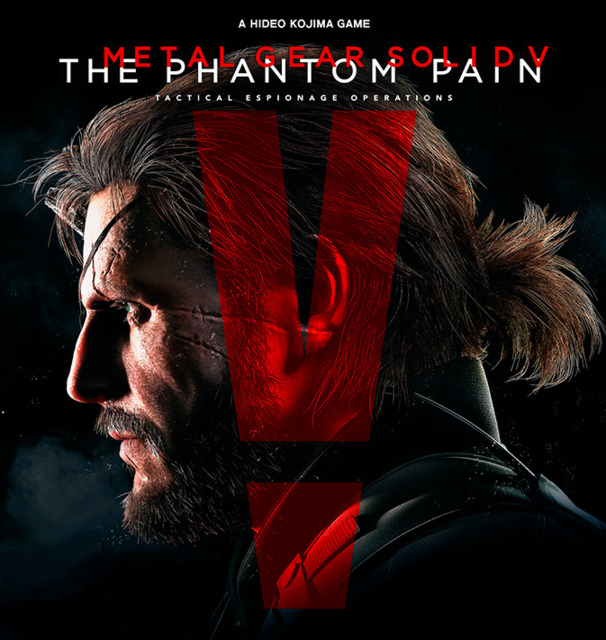A game suffering from an identity crisis.
The Metal Gear series is one my all time favourites, and The Phantom Pain was promised as its ultimate chapter, a final coda that will refine, reimagine and put to bed all things Metal Gear. Right off the bat, it is certainly not that. In many ways this game is as ‘Metal Gear’ as ever, but in many other, fairly significant ways, this is something else entirely, and not perhaps the game that Metal Gear fans were expecting. Expectations should perhaps be left at the door when reviewing a game, however, and a vast amount of this game is incredible. The visuals are amazing, beautiful, smooth and on an impressive scale. The game is packed with an enormous amount of content, with around 30 hours of story content, single-player side missions that would push that hour count up to over 100, and two distinct multiplayer modes which utilise the game’s excellent single-player gameplay in a fashion similar to 2013’s The Last of Us. The audio in-game is fantastic, becoming a tool necessary for proper interpretation of the game’s world, with guard positioning etc. being most easily deciphered this way, but the voice-acting and the game’s original soundtrack are something of a let-down after the fantastic work the series has done in these areas in the past. The inclusion of the audio cassettes featuring popular (sometimes anachronistic) 80s songs is very fun, though. The actual gameplay is perhaps the best mix of stealth and action that has ever been accomplished. The open-world nature of the game, though not particularly interesting in terms of side-quests or any of the other trappings one might associate with the format, allows for creative and unique approaches to missions that achieve the sensation of being your ideas rather than some interpretation of the game mechanics you were forced into finding. Not since Deus Ex has this sense of a personalised approach to any given situation been so strong, and the game is designed primarily with this in mind. Every facet of the game seems present only to serve whatever imaginative combat scenario you may want to manufacture, and it’s incredibly fun to mess around with. The excellent AI that will adapt to your particular combat style by changing their equipment and tactics accordingly are impressive and challenging to fight, but unfortunately there are few missions in the game that serve its fantastic sandbox gameplay particularly well, though the ones that do are a joy. This brings us to one of the games two major problems, the first being that despite the huge amount of content in the game, a lot of it is incredibly repetitive, quite often literally so. The hundreds of side missions are reinterpretations of the same six or seven mission ideas, very few of the enemy outposts in the world are particularly distinct from each other and the huge amount of equipment you are able to collect during the game (often via the incredibly obnoxious free-to-play style research system at your Mother Base, which is sadly an undercooked and uninteresting aspect of the game) have only the most minor differences from each other, aside from the broad strokes like “rocket launcher” or “machine gun”. The game feels bloated by a copy+paste approach to design, and the fact that you can pay real money to speed up the unlock of two virtually identical types of SMG is just laughable in the single-player mode of a full priced game. Standing completely opposite to the unpleasantly bloated single-player mission structure is the uncomfortably thin story. It seems amazing to say this of a Metal Gear game, but the story in this game is weak, predictable and light on content. Some of the blame can be placed on the pacing of the story being spread so thin over the top of the over-inflated hour count of the game, but what is there is also just not as interesting as previous games. The cutscenes are shorter than ever, the story is more straightforward than ever, and everything just feels a little like an afterthought. Parts are good, particularly the bits involving Huey, but the series’ least interesting villain drives the series’ least inventive tale told with the series’ least competent writing. Metal Gear Solid V: The Phantom Pain, feels almost like two different games posing as one. There’s the incredibly well-crafted mechanics, allowing for the most free-wheeling and exhilarating gameplay in perhaps any action/stealth to date that represents Metal Gear at its best yet, and then there’s the underwhelming story, the feeling that the game is somehow both overstuffed and undercooked, and the inclusion of micro-transaction elements which hinder the game to a frustrating degree. If you can look past the blemishes of the weaker aspects of the game (perhaps easiest to do if this is your first Metal Gear game), then what remains is a creative and well-realised core game. It just really is a shame about almost everything else surrounding it.
